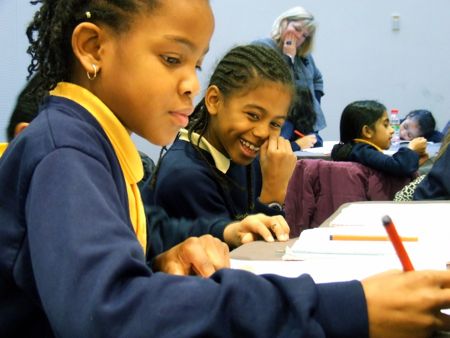Fashioning & Flow
creating meaning
Ken Robinson’s video address to ‘A New Direction’ Dec 5 2011
I’m delighted to see that a great deal of what Ken has to say turns up in very specific and explicit ways on the pages of this blog. He talks – in his accessible and easy-going manner – of the need to re-engineer education’s “core purposes” (as opposed to promoting a “back to basics” agenda) and those purposes involve developing a curriculum based on relations between the economic, the cultural and the personal. He proposes that the link between creativity and multi-intelligence is core to the survival of our civilisation, which is quite a claim.
Like Williams, Robinson describes culture as a process; he talks of misconceptions about the notion of creativity, the questionable primacy of the literary canon, youth unemployment and school drop out rates as a consequence of our failure to engage young people, the sharing of meaning-making processes as a culture generator, policies that ham-string teacher innovation, creativity as practical applied imagination and the need for children to move towards a critical understanding of their own and others’ socio-cultural embeddedness. He even mentions enlightened elements of the Finnish education system.
If you have 40 mins to spare, it’s well worth a view:
Lincoln Centre Institute: Capacities for Imaginative Learning
I respond quite well to lists … and working with BFI Education has meant coming across the below significant list. The Lincoln Center Institute in New York has created 10 Capacities for Imaginative Learning as a framework for student learning. They operate as both strategies for, and outcomes of, study according to LCI’s practice.
It struck me that many of these capacities were exhibited in my case studies. It’s an interesting and comprehensive framework which will work well in forthcoming learning evaluations.
Noticing Deeply: To identify and articulate layers of detail in a work of art through continuous interaction with it over time
Embodying: To experience a work of art through your senses, as well as emotionally, and also to physically represent that experience
Questioning: To ask questions throughout your explorations that further your own learning; to ask the question, “What if?”
Making Connections: To connect what you notice and the patterns you see to your prior knowledge and experiences, as well as to others’ knowledge and experiences, and to text and multimedia resources
Identifying Patterns: To find relationships among the details you notice, group them, and recognize patterns
Exhibiting Empathy: To respect the diverse perspectives of others in the community; to understand the experiences of others emotionally as well as intellectually
Living with ambiguity: To understand that issues have more than one interpretation, that not all problems have immediate or clear-cut solutions, and to be patient while a resolution becomes clear
Creating Meaning: To create your own interpretations based on the previous capacities, see these in the light of others in the community, create a synthesis, and express it in your own voice
Taking Action: To try out new ideas, behaviors or situations in ways that are neither too easy, nor too dangerous or difficult, based on the synthesis of what you have learned in your explorations
Reflecting/Assessing: To look back on your learning, continually assess what you have learned, assess/identify what challenges remain, and assess/identify what further learning needs to happen. This occurs not only at the end of a learning experience, but is part of what happens throughout that experience. It is also not the end of your learning; it is part of beginning to learn something else
